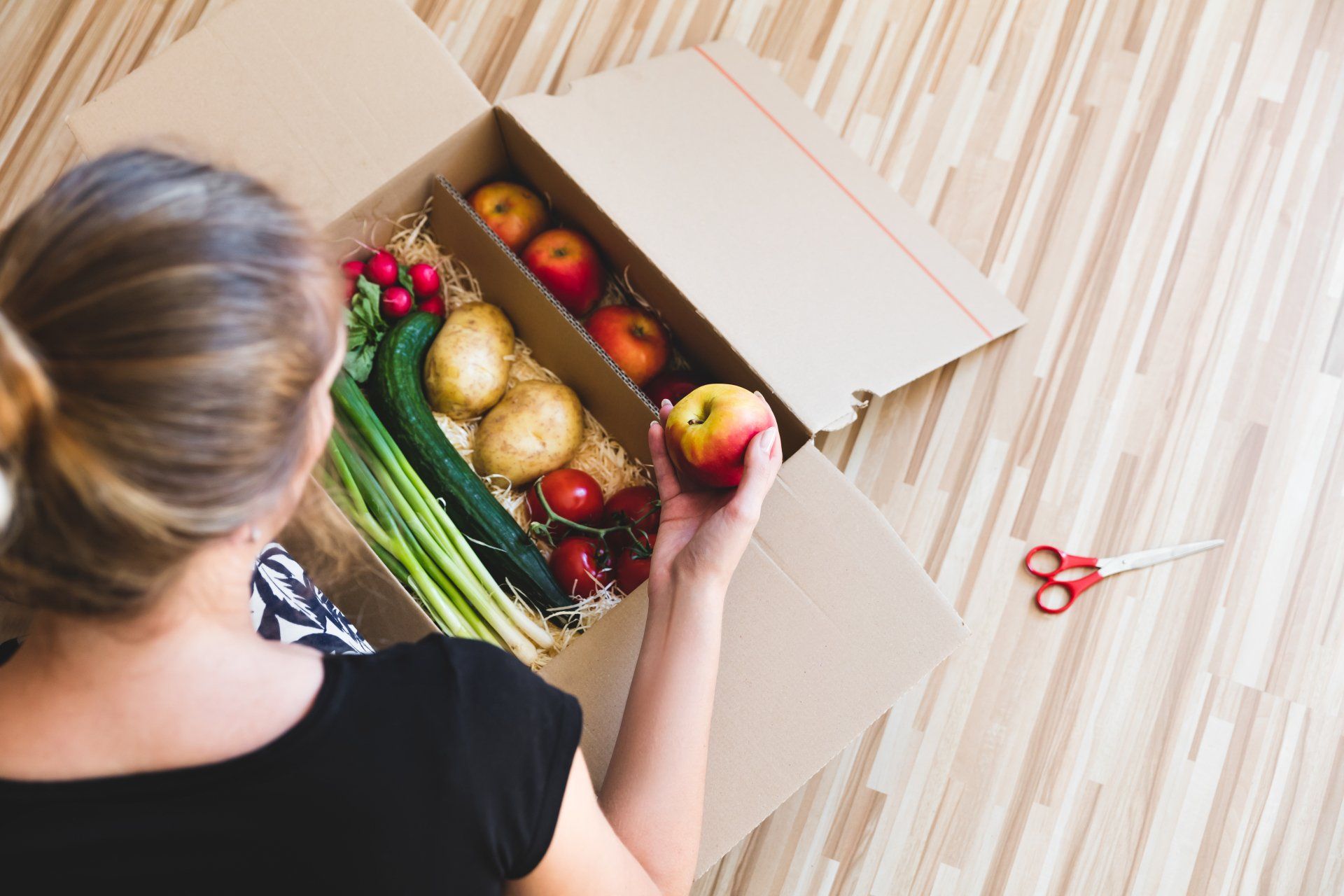The Growth of Online Grocery
Matt Simpson | 24 March 2021
Industry Insights / The Growth of Online Grocery
With strict COVID restrictions and more people staying at home, supermarkets struggled to keep up with the vast number of online orders at the start of the pandemic. Grocery retailers learned quickly and adapted to the high demand, dramatically improving their online platform and services. Amazon has been playing the field of grocery retail in the UK for a number of years, but their partnership with Morrisons granted the sales giant a key ticket into the market. Will this be a positive move for the nation’s supermarkets? Will the online grocery shopping trend continue post-COVID or will consumers head back to in-store shopping?

Supermarkets and their growth during the pandemic - in-store and online
The pandemic rapidly changed the UK grocery industry, especially in the terms of online shopping demand. Before the first lockdown, consumers purchased less groceries online in comparison to April 2020. These purchases increased as more meals were consumed at home due to lockdown measures. People stopped going to restaurants and pubs and started working from home, as most children were learning from home.
Those who visited their local shops took proximity, cleanliness and crowds into account. People were going less often (3.5 times per week) to supermarkets but increased their spend during each visit. These were 100 million trips less than the same time in 2019, with shoppers increasing their spend by about 50%.
In June 2020, sales for online grocery increased by
11.5%.
The Christmas period increased the demand for luxury festive items, raising sales a further 8.5%. Morrisons reported a threefold increase in online sales
fuelled by increased demand for champagne and salmon as gathering rules and celebrations changed due to COVID-19.
Are shoppers going back in-store?
The 2021 Future of Convenience Report
explored the trends of change in consumer behaviour during the pandemic and how it would impact purchasing behaviours post-COVID. The report predicts that city centre footfall will plummet, with 28% of shoppers stating that they would be visiting local stores instead. Shopping habits have also changed for supermarkets; 18% have permanently switched to online grocery.
Retailers have learned how to handle the demand and are constantly improving their services, delivery, and reliability. Due to lockdown restrictions, more than six million customers
the UK trialled online shopping last year. Current trend figures of online grocery sales are continuing to rise
due to convenience, safety and shopper familiarity. It is expected that the recession will force customers to choose value over loyalty. This means that supermarkets need to sell items that consumers will see as ‘good value’ in order to keep shoppers on their side.
Amazon and Morrisons join forces
Amazon has been ahead of UK supermarkets for a while in regards of e-commerce and logistics. The selling giant could dramatically change the UK grocery market, but has had a hard time trying to enter the market through various schemes and projects. The grocery delivery initiative in early 2020 was not successful in the US and never expanded outside of major cities. The overwhelming demand forced Amazon to close some Whole Foods stores (UK included) and temporarily suspend Amazon Pantry services. In spite of these failures, Amazon won’t back down from the grocery market and are aiming to compete with all supermarkets in the future.
While this seems worrying for all supermarket chains, Morrisons is the only retailer who could benefit from Amazon’s success. Amazon and Morrisons signed a new deal in 2019, working together to improve the shopping experience. This partnership offers groceries to customers in selected cities around the UK, and Amazon Prime members who live in eligible areas can benefit from the Amazon Fresh service (London and Southern England only).
Sales in Morrisons stores rose by 7.3%
in the span of nine weeks up to the 3rd of January.
They also encountered a 1.2% boost
in wholesale sales from the Amazon deal, and to supply convenience stores. The supermarket was the only one of the UK’s four largest names over Christmas who gained market shares.
Do you want to maximise your brand’s online presence on Morrisons.com? Please Request a Proposal
or ask for further information by emailing hello@MorrisonsMedia.com


